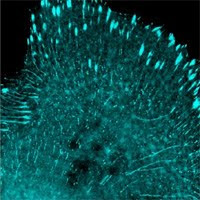rom AlleleNews http://www.allelebiotech.com/News//index.php?mod=article&cat=iPSStemCells&article=537
Not all iPS cells can develop into adult animals, and one of the main reasons seems to be that regions of chromosomes remain silent in most iPSCs, according to a recent Nature paper by Hochedlinger and colleagues. "We found that a segment of chromosome 12, containing genes important for fetal development was abnormally shut off in most iPSCs," Hochedlinger said in a press release. "These findings indicate we need to keep improving the way we produce iPSCs and suggest the need for new reprogramming strategies." It sounds like that reprogramming typically employed to reverse differentiation fails to activate come imprinted genes. It would make sense to include factors that can help activate imprinted genes to the reprogramming mix to have "better" iPS cells.
The good news is that by using the only 1 out of some 60 iPSC clones, this group of researchers was able to create an adult mouse. They will now look into whether human iPSCs have similar properties as their mouse counterparts.
Original publications: http://www.nature.com/nature/journal/vaop/ncurrent/full/nature09017.html
BioTechniques Review : http://www.biotechniques.com/news/Induced-pluripotent-stem-cells-create-first-living-animal/biotechniques-273626.html
Allele News
Friday, May 14, 2010
Mouse induced pluripotent stem cells (iPSCs) differ from embryonic stem cells with aberrant silencing of imprinted genes on chromosome 12qF1
Labels:
induced pluripotent stem cells,
iPS,
iPS cells,
iPS lentivirus,
iPSC,
iPSC generation,
iPSCs
Subscribe to:
Post Comments (Atom)




No comments:
Post a Comment